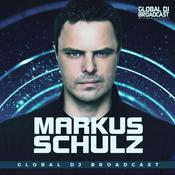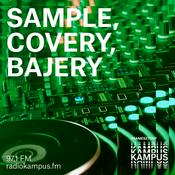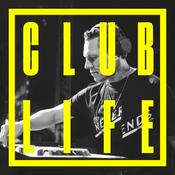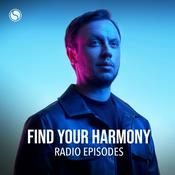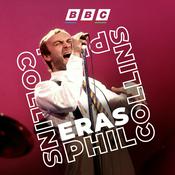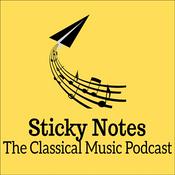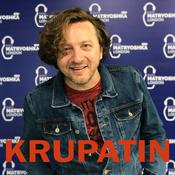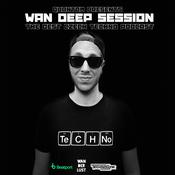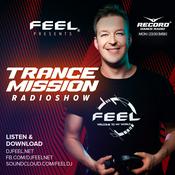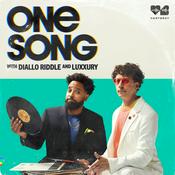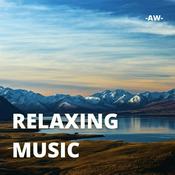71 odcinków
- In this episode, Dave and Andrew listen to the first work without a written score to ever win a Pulitzer, Ornette Coleman's album Sound Grammar. What will they think about this new direction for the prize? And it wouldn't be Hearing the Pulitzers without discussing some drama from the judges! We also discuss a special certificate granted to a deserving late jazz musician.
If you'd like more information about Ornette Coleman, we recommend:
Stephen Rush's book Free Jazz, Harmolodics, and Ornette Coleman (Routledge, 2016)
Michael Stephan's book Experiencing Ornette Coleman: A Listener's Companion (Rowman and Littlefield, 2017)
Nathan Frink's dissertation "Dancing in His Head: The Evolution of Ornette Coleman's Music and Compositional Philosophy" (University of Pittsburgh, 2016) - In this episode, Dave and Andrew discuss a piano concerto that the composer, Yehudi Wyner, said "permits expression of the raunchy as well as the refined." How will that duality sit with the hosts? Why doesn't a distinguished composer like Wyner get more performances?? And what former PP winners make an appearance in the episode?
If you'd like more information about Yehudi Wyner, we recommend:
June Yin-Hsuan Chen's dissertation, "Analysis of Yehudi Wyner's Piano Concerto, 'Chiavi in Mano'"
Chapter 17: "A Tale of Two Concertos: The Piano Concertos of Yehudi Wyner and Bernard Rands" in Observations on Music, Culture, and Politics by Daniel Asia
David Cleary's "An Intoxicating Wyner at 70" in The New Music Connoisseur 8, no. 2 (2000) 9–10. - In 2020, Dave and Andrew released their 9th episode, covering Douglas Moore's forgotten opera Giants in the Earth without being able to hear it or even see the score. Now, after 50 years after the last performance, Giants in the Earth has appeared again in a new production by the South Dakota Symphony Orchestra. Will it be a hit or a miss?
If you'd like to know more about the performance, we recommend:
Information about the live performance by the South Dakota Symphony Orchestra
The streaming performance of Giants in the Earth
Joshua Barone's coverage of the performance in the New York Times, "An Operatic ‘Diamond on the Side of the Road’ Catches Light Again." - In this episode, Dave and Andrew explore a concerto for orchestra that achieved great heights by, in the words of its creator Steven Stucky, "standing on the shoulders of those who have already cleared the path ahead." But will our hosts appreciate the view? And who were some of the other nominees this year? We also discuss a rule change within the Pulitzer Prize award process that took effect with this year's winner.
If you'd like more information about Steven Stucky, we recommend:
"Stucky, Hartke, Crockett: Conversations in Los Angeles." Contemporary Music Review, 10, no. 1 (1994): 51–73.
Franklin Crawford, "Steal this concerto, please: An interview with Steven Stucky" Cornell Chronicle, April 21, 2005.
Steven Stucky, Lutosławski and his Music (Cambridge: Cambridge University Press, 1981).
This Washington Post article about the changes to the music prize from June 2004. - In this episode, Dave and Andrew dive into a work inspired by Shakespeare's The Tempest. Will the work live up to the Bard's reputation? And does this piece fit into the typical mold of a Pulitzer Prize winning work?
If you'd like more information about Paul Moravec, we recommend:
Paul Moravec's personal website
Dialogue with Moravec for the Kansas City Lyric Opera's production of The Shining
Paul Moravec's short article “Tonality and Transcendence.” Contemporary Music Review vol. 6. no. 2 (1992): 39–42.
Więcej Muzyka podcastów
Trendy w podcaście Muzyka
O Hearing The Pulitzers
Hearing the Pulitzers: A piece-by-piece, episode-by-episode exploration of the winners of the Pulitzer Prize in Music with hosts Andrew Granade and David Thurmaier.
Strona internetowa podcastuSłuchaj Hearing The Pulitzers, David Guetta i wielu innych podcastów z całego świata dzięki aplikacji radio.pl

Uzyskaj bezpłatną aplikację radio.pl
- Stacje i podcasty do zakładek
- Strumieniuj przez Wi-Fi lub Bluetooth
- Obsługuje Carplay & Android Auto
- Jeszcze więcej funkcjonalności
Uzyskaj bezpłatną aplikację radio.pl
- Stacje i podcasty do zakładek
- Strumieniuj przez Wi-Fi lub Bluetooth
- Obsługuje Carplay & Android Auto
- Jeszcze więcej funkcjonalności


Hearing The Pulitzers
Zeskanuj kod,
pobierz aplikację,
zacznij słuchać.
pobierz aplikację,
zacznij słuchać.




